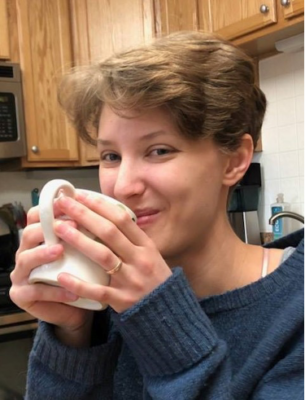Finding Your Best Fit

Spotlight on Celine Cammarata, Careers Beyond Academia Advisory Board Member, a doctoral candidate in developmental psychology. Having successfully defended her dissertation and obtained a postdoctoral position, she reflects on the career exploration and professional development programming she took part in during her Ph.D.
- Tell us a little about your research, and how you balanced your research priorities with your other activities.
My research explores the neural basis of how we think and behave flexibly and adaptively. While understanding the details of circuits in the brain has always been the exciting part, connecting my work to societal benefit is a critical component. Consequently, I don’t see a strong division between my research and my other activities (leadership, outreach, etc.) and haven’t really struggled to find time for one over the other – they are all part of the same larger goal.
- What benefits did you glean from participating in career and professional development programming while in your PhD?
 I have always been someone who obsess over my career plans. It might sound counter intuitive, but I think the largest benefit I gleaned from participating with Careers Beyond Academia was to STOP doing that. By learning about a wide range of jobs, hearing from a diversity of professionals, and especially through my involvement in leadership positions I came to see that there are many different roles I would enjoy working in, and conversely that there is no magic job that’s a perfect fit. I learned to see my career not as a selection to be agonized over, but as something to construct out of the pieces that I want (while accepting that I won’t always get exactly what I’m looking for).
I have always been someone who obsess over my career plans. It might sound counter intuitive, but I think the largest benefit I gleaned from participating with Careers Beyond Academia was to STOP doing that. By learning about a wide range of jobs, hearing from a diversity of professionals, and especially through my involvement in leadership positions I came to see that there are many different roles I would enjoy working in, and conversely that there is no magic job that’s a perfect fit. I learned to see my career not as a selection to be agonized over, but as something to construct out of the pieces that I want (while accepting that I won’t always get exactly what I’m looking for).
- You invested significant efforts to help others while exploring your own possibilities, how did this help you think more deeply about your own path?
Supporting career exploration and development for others has been critical in helping me gain perspective. When you talk with many students it becomes obvious that the values we so easily place on different careers are arbitrary. I’ve encountered people who look down on non-academic careers, but I’ve also met plenty of people who think disparagingly of those staying in academia, and I think neither position is justified; rather, one person may have a fulfilling and productive career as a professor and another might do terrifically as, say, a data analyst for an insurance company. These people may well be completely miserable in one another’s jobs, and that is fine. Just because something is a bad fit for you doesn’t make it inferior.
- How do you feel about having explored many career possibilities and decided on a postdoc within academia?
I’ve noticed that some people seem to approach academic vs. non-academic career choices as though you’re either in or you’re out, as though people who want to stay in research have no other interests and those who consider other options must hate academia. In my experience, at least, things are a lot more nuanced than that. I have increasingly focused on trying to find the best way to balance my various interests in science and in society, and in learning how to combine those into the career I want overall. Getting to meet and speak with many professionals and peers was extremely helpful in figuring out how this might play out. For instance, many of the people I spoke to who had fully transitioned to policy careers spoke about finding bench work dissatisfying, which made me realize that I didn’t feel that way at all and that I would really miss doing experiments.
These kinds of conversations helped me think more concretely about what I do and don’t want in my job, and to get in touch with what I enjoy. I started to realize that part of what I was looking for in a job was an emotional feeling of confidence and security that really can’t come from external sources – looking for that was bound to be fruitless, so I figured I should just think about what I value that CAN come from my work. Ultimately I felt that there were things I value about being in an academic research environment that I can’t get elsewhere, whereas there are other ways I can stay involved in policy without moving to full time right now.
- What are your future/long-term plans?
After my post-doc, I am considering looking for a position at a research institute where I would work with a team on mission-driven projects. One of my main interests in the policy world is diplomacy, so I want to start incorporating that into my work such as through efforts to support research in developing countries. As a graduate student I’ve found that service positions are an excellent way to make an impact, so that is something I plan to continue pursuing as well, for example through scientific societies.


